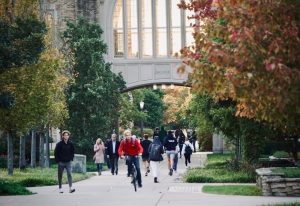No products in the cart.
The AI Job Market: A Yale Study’s Surprising Findings
A recent Yale study reveals surprising truths about AI and employment. Are fears of job loss justified?
New Haven, Connecticut — A recent study from Yale University has thrown a lifeline to those anxious about the rise of artificial intelligence in the workplace. In an era where headlines scream about robots snatching jobs and algorithms rendering human skills obsolete, this research suggests a more nuanced reality.
The study, which surveyed various industries and analyzed labor market data, found little evidence that AI is substantially displacing jobs. Instead, it paints a picture where AI acts more as a catalyst for job transformation rather than outright job loss.

Yale’s findings align with a growing body of research that challenges the dystopian narrative surrounding AI. According to the study’s lead researcher, Dr. Emily Chen, “AI is not here to replace us; it’s here to enhance our capabilities. The narrative that AI will lead to mass unemployment is overly simplistic and largely unfounded.” This perspective resonates with many professionals who have begun to see AI as a tool that can elevate their work rather than a competitor.
 Career Trends
Career TrendsHow University Rankings Are Shaping Careers in 2025
Discover the significant impact of university rankings on career trajectories in 2025, with a focus on institutions across the globe.
But let’s consider the broader implications. The labor market is in a constant state of flux, adapting to technological innovations at a pace never seen before. While some sectors, like manufacturing, have seen automation lead to job reductions, others are witnessing an increase in employment opportunities thanks to AI. For instance, the tech industry has seen a surge in demand for AI specialists, data analysts, and cybersecurity experts, roles that barely existed a decade ago.
The narrative that AI will lead to mass unemployment is overly simplistic and largely unfounded.” This perspective resonates with many professionals who have begun to see AI as a tool that can elevate their work rather than a competitor.
Moreover, the integration of AI into various sectors often results in the creation of new jobs that require a different skill set. Take healthcare, for example. AI is revolutionizing patient care, leading to increased demand for professionals who can interpret AI-generated data and use it to inform treatment plans. This is a quintessential example of how technology can create new avenues for employment, rather than simply eliminating existing ones.
Yet, the conversation cannot ignore the challenge of reskilling. As industries evolve, so too must the workforce. The World Economic Forum estimates that by 2025, 85 million jobs may be displaced due to the shift in labor division between humans and machines. However, they also predict that 97 million new roles will emerge that are more adapted to the new division of labor. Herein lies the crux of the issue: how can we prepare the current workforce for this inevitable transition?
Many educational institutions are already responding. Universities and vocational schools are incorporating AI and technology-focused curricula to equip students with the skills necessary for the future job market. For young professionals, this means embracing lifelong learning and seeking out training opportunities that align with emerging technologies.
 Business Innovation
Business InnovationHarnessing Collaboration for Breakthrough Innovation
Collaboration is reshaping innovation landscapes. Explore how open science fosters success stories and what this means for the future of…
Read More →Furthermore, companies are also stepping up. Organizations like IBM and Google have launched initiatives to reskill their workforce, recognizing that adaptation is crucial for their survival. These efforts highlight the importance of a proactive approach to career development in the face of rapid technological advancement.
For those already in the workforce, the key takeaway is to remain adaptable. The job market is not just about finding a position; it’s about evolving with it. Upskilling and reskilling will be paramount. Professionals should seek out certifications in AI, data analysis, and other technology-related fields. Networking within these new realms can open doors to opportunities that were previously unimaginable.
Universities and vocational schools are incorporating AI and technology-focused curricula to equip students with the skills necessary for the future job market.
As we look ahead, the landscape of employment will undoubtedly continue to shift. AI will play a significant role in shaping this future, but rather than fearing it, we should embrace the potential it holds for creating new opportunities. The narrative is changing; AI is not the enemy, but rather a partner in the evolution of work.











